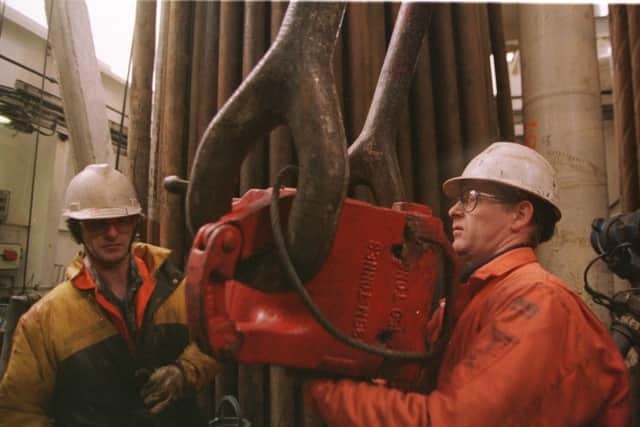Small pools offer big advantage to Scotland's oil industry


The sector has been rocked by a sharp fall in the price of oil since 2015, with more than 100,000 job losses across the UK.
Although the price has since marginally recovered, the North Sea industry is under pressure to find economically viable ways to develop more marginal oil fields.
Advertisement
Hide AdAdvertisement
Hide AdSmall pools, defined as oil and gas reserves as less than 50 million boe, are often overlooked due to reduced profit margins.


Now, the National Subsea Research Initiative (NSRI) is looking to help the industry adopt “a collaborative and integrated approach” to unlock the potential of small pools.
Peter Blake, chairman of NSRI, said: “Often conventional solutions prove too costly or unsuitable for marginal fields, so smarter engineering combined with better ways to manage technical and economic risk is required.
“If the subsea industry can rise to this challenge of economically tapping into these pools, the North Sea could have a whole new lease of life.”
The NSRI will host a workshop at the 2017 Subsea Expo, the world’s biggest conference on underwater technology, which takes place in Aberdeen next month.


The event will welcome a host of industry experts to the stage to showcase their involvement and provide a platform to discuss the next steps, looking at what is required to unlock reserves that have previously been deemed uneconomic.
The Oil and Gas Authority (OGA) recently announced that approximately 350 unsanctioned discoveries, containing more than three billion barrels of oil equivalent (boe) remain in the UK continental shelf.
While the majority of small pools are in close proximity to existing infrastructure, some are stranded and would require a more novel approach.
Advertisement
Hide AdAdvertisement
Hide AdBlake added: “These discoveries, while economically challenged, represent a significant potential to extend the economic life of the basin.
“There are a myriad of challenges; from stranded pools distant from infrastructure, to fluids incompatible with potential hosts and complex ownership structures.
“However, what is common to them all is that they need new ways of thinking, the application of new technologies and greater collaboration to develop economic solutions. To safeguard our industry we need to kick-start these developments.”
“We need the industry to embrace the size of the prize and come up with modern, cost-effective approaches to safely exploit marginal and stranded fields.
“We hope to help to break down some of the barriers and identify ways to help speed up the development of fit-for-purpose solutions which will go some way in securing the long-term future of the industry in the North Sea.”
Carlo Procaccini, head of technology at the OGA, said: “Following an extensive mapping exercise, we now know exactly where these small pools are located and we are working with NSRI and others to change the existing industry paradigms to unlock their potential.
“Technology development is key to small pools cost reduction, from reducing the cost of development wells to designing optimised subsea infrastructure.
“The recoverable oil and gas held in small pools could represent a new chapter for the UK continental shelf.”